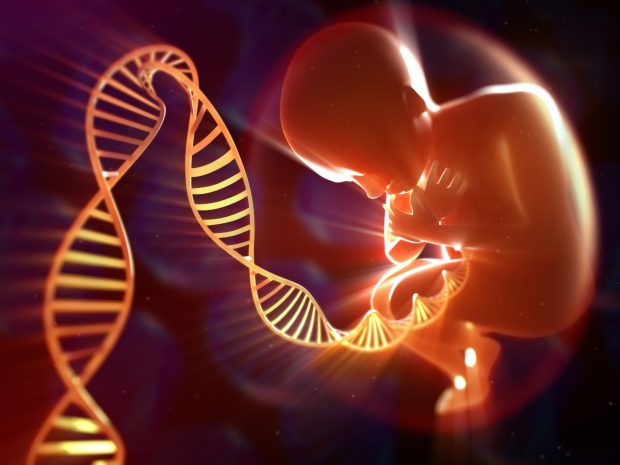Challenges and Promises of NIPT for Rare Genetic Disorders
Non-invasive prenatal testing (NIPT) lets doctors discover chromosomal disorders, which include Down syndrome as well as aneuploidies that affect the three sex chromosomes (trisomy 21, trisomy 18 as well as trisomy 13). NIPT will also look for microdeletions in chromosomes that can cause conditions such as Turner syndrome, Klinefelter syndrome, as well as triple X and XYY syndromes.
The NIPT test is an effective instrument that helps couples and women make educated decisions about their pregnancies. But, the results of the test may also trigger tension and anxiety for certain sufferers.

Prenatal Screening for Rare Genetic Disorders
NIPT is an increasingly common screening method for chromosomal abnormalities which can lead to genetic diseases. The procedure uses a small amount of the mother’s blood to detect small missing pieces of DNA (microdeletions) within specific areas of the chromosome.
Advanced tests for NIPT use techniques for sequencing, which can detect microduplications as well as the insertion of a gene. These tests can be used to detect uncommon chromosomal anomalies, including syndromes that are syndromic, such as DiGeorge syndrome or deletions of the X chromosome. These may lead to Turner and Klinefelter syndromes.
The NIPT test detects Down syndrome and various other trisomies including trisomy 18 (Edwards) as well as trisomy 13 (Patau). The test can also detect aneuploidies of the X or the Ychromosomes. This includes Turner syndrome or The XXY (Klinefelter syndrome). NIPT can determine also the gender of a fetus as early as the pregnancy.
Non Invasive Prenatal Testing for Rare Conditions
This test, which relies on the analysis of circulating, cell-free embryonic DNA (cff-DNA) found in mother’s bloodstream, can be a safe alternative to the invasive prenatal tests known as amniocentesis, chorionic and chorionic sampling. These procedures have a 1-2 percentage chance of miscarriage.
The NIPT is capable of detecting aneuploidies such as trisomies which can cause Down syndrome as well as Edwards syndrome, and the microdeletions in chromosomes which cause Patau and Kleinfelter syndrome. It can also determine sex after nine weeks of gestation which is much before ultrasound.
For those women whose tests show a significant risk for a rare condition it is possible to be checked by chorionic valus testing. But, this test comes with very low false positive rates. Additionally, the identification of some rare conditions may be made more difficult by a poor the fetal ratio or by different factors like the presence of obesity in mothers or immune disorders that impact the cf-DNA levels in placenta.
Detection of Rare Genetic Disorders associated with NIPT
NIPT can currently identify chromosomal abnormalities like trisomy 21 (Down syndrome) trisomy 18 and trisomy 13. These result from extra or missing copies of particular chromosomes. It is also beginning to test for genetic diseases that can be due to changes in one or more genes.
These alterations are caused by small duplications or deletions in certain parts of the genome. They are among the most easy to recognize. Advanced NIPTs xet nghiem nipt tai ha noi are also able to screen for more rare conditions, including Turner syndrome or 22q 11.2 deletion syndrome.
Since it is relatively low cost and noninvasive nature The NIPT procedure could be utilized as a screening tool in LMICs in conjunction with screening for maternal serum and ultrasound tests. Implementing this approach is going to require technological innovations focused on low-resource settings, as well as the training of health professionals in communities in the process of performing blood draws and analyze ultrasound images.
NIPT Benefits for Expectant Parents
When pregnant women are in need of NIPT, it is typically recommended on the basis of the guidelines of OB-GYNs and midwives. It’s a good idea to check with your insurance provider to learn the extent to which NIPT is covered as well as what the out-of-pocket costs are.
NIPT is a screening test which can determine if an individual is at more risk of being affected by certain genetic conditions. However, it can’t detect the disease. A 2016 study found that NIPT exhibits a very high sensitivity to trisomy 21, as well as other chromosomal abnormalities.
It also helps to identify rare genetic conditions that either run in the family including cystic fibrosis or Duchenne muscular dystrophy. It can also be found in conditions that are born, like the thanatophoric disorder. These conditions could only be detected with invasive tests such as amniocentesis and CVS. NIPT can avoid these invasive tests and boost the probability of a positive diagnosis.
Challenges in NIPT for Rare Genetic Disorders
Prenatal screening that is non-invasive (NIPT) analyzes cell-free fetal DNA that is found in blood of the mother. It gained recognition since it allows the identification of chromosomal aneuploidies and determination of sex with a low risk of miscarriage. NIPT has improved in recent years and now includes detection of microdeletions greater than 7 Mb, as well as single gene disorders caused by mutations or autosomal dominant inheritance.
Nevertheless, there is still much work to be done in order to improve the accuracy of the NIPT. Particularly, the PPVs of various aneuploidies and single gene disorders can differ greatly in the study and across patient cohorts that make it difficult to counsel patients.
NIPT is at present too costly for LMICs, but continued costs for sequencing are expected to decrease, making the test cheaper and more available. Community health workers are already in a position to draw blood so it should be relatively simple for them to implement the test.